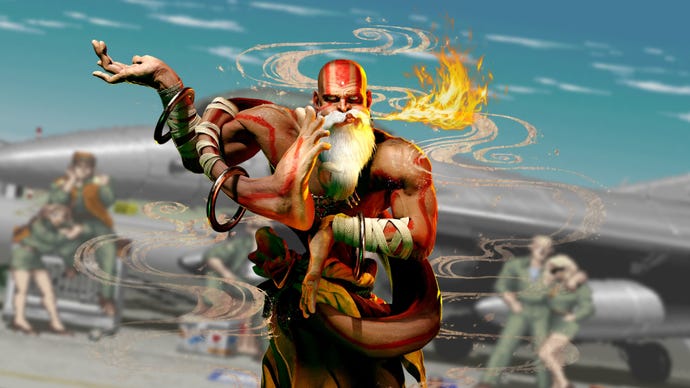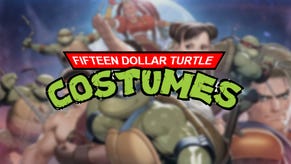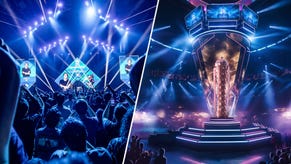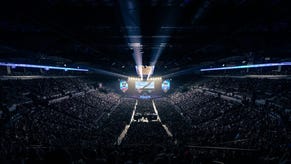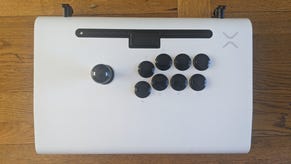I flew 5000 miles to get owned at Street Fighter 6, but it was worth it
You'd think taking the L and bowing out early would make anyone angry. But I think it was all worth it.
A few months ago, a decided to throw the retirement plan to the wind and drop and a good chunk of my savings on a flight to Las Vegas. Not for blackjack, but for a far sillier gamble. As of writing, I've blown roughly £2,000 for Street Fighter 6.
That includes a flight from London to Vegas, a few nights in a hotel room, a ticket to the world's biggest fighting game tournament, and food that I sadly need to survive. But, with a $10 can of Red Bull in my hands (thanks Mandalay Bay), I think it might be worth it.
On Friday August 4, at 2PM, roughly 30 other people and I gathered around a large table for our matches. My stretchy, difficult Dhalsim was ready to go. My first opponent didn't turn up, which means technically I won a game in my pools. Having technically won, I was thrown into the maw of Slice, a Canadian Dhalsim player who ruined me in a mirror match in front of, roughly, a dozen bystanders. After that, a lost a close game against New York native DooBooDomo, and my dreams of glory were dead in the water.
I struggle to put into words how amazing playing these sets was. Hearing the crowd behind you, getting invested into matches played by total strangers. Cheering, booing, chanting and ranting about the combos they're seeing and those behind the pads and sticks. There is an energy in playing live; a knot in your stomach and a warmth in your head. Your hands gripping a controller way too hard, the exhales following a close round.
But perhaps better than the matches themselves are the people you meet. During your matches, before your matches, and after your matches. The true strength of Street Fighter 6 – or any fighting game for that matter – is its cultural relevance as a social activity. The game only lasts so long, but the event lasts far longer. I must have had 50 conversations with different people at Evo this year, not for work, just to talk about the games and the matches we were watching.
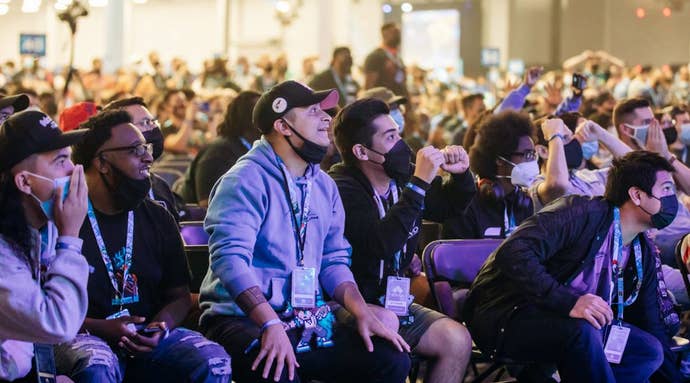
Don't take my word for it, ask the group of people at the front of the line on why they came also this way:
"I drank, I passed out at 7pm and I woke up at 3AM. I was in a good mood so I thought I'd just sit down read and wait," beams Oregon native Caleb, sitting at the front of the line Friday morning. With doors to the event opening at around 9AM, he came to play Street Fighter 5 and spectate the event in-person for the very first time.
Just a beginner having only become a part of the scene a month ago, Caleb believes the reason the trip is worth doing comes down to the community element. "I think some people are sporadic, plus I think some people just really love the community. It's of all ages and I they tend to pretty loving and chill for the most part.
It's not just novices, some true OGs were present, too, getting into the mood nice and early. Cookie – a sponsored player, cosplayer, martial artist and fighting game lore lover – was there to play Mortal Kombat 11 and Street Fighter 6, as well as attend a variety of community events. They recall being around in the legendary New York arcade scene at New York's ChinaTown Fair, and hopes that Evo can bring some legacy games that built the competitive scene as we know it to the main stage as more and more people attend.
There's also Kevin (who travelled down for his sixth Evo), Travis (who flew in from North Carolina his their family to attend), Christian (who signed up for five different tournaments), and the thousands of people behind them with their own reasons to attend, and a shared love for the genre.
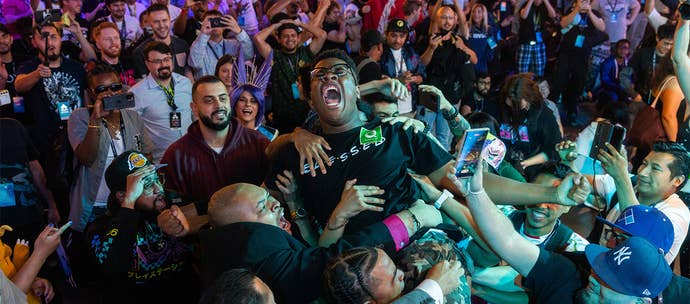
During the peak of the Covid-19 pandemic, I learned that you can't quite beat playing games in-person. Not for my money. Gaming as a social event, as a cultural scene, is where some of the best bits of games are hidden. It's not just a Street Fighter thing either – the same is true for old school LANs where CS and Starcraft players cut their teeth. Just ask our 'editor-at-large', Alex Donaldson. And it's a truth that's just as visible today in gaming cafes and esports bars.
Once the matches are over, all that's left is to walk around, try out a few new games (including the much-anticipated Project L), watch some matches, chat to people, and connect with the community around you. I never thought I'd be in the mindset where a $10 Redbull wouldn't ruin my day, but somehow it didn't. I think that's thanks to the social enrichment gaming can provide. That, and walking into the staff section backstage and nabbing plates of food during lunch and dinner.
